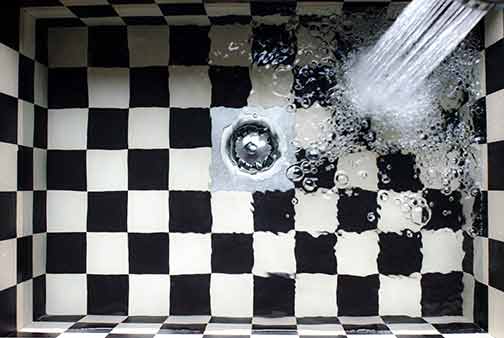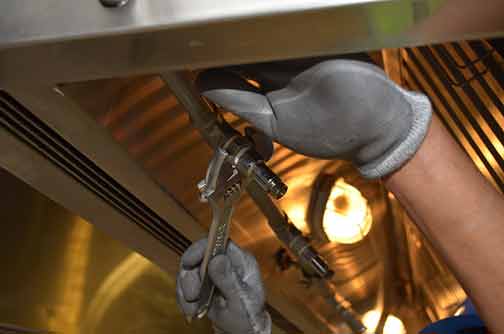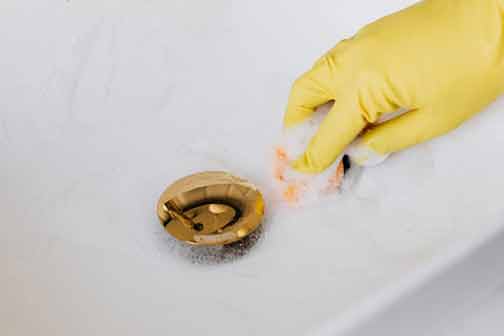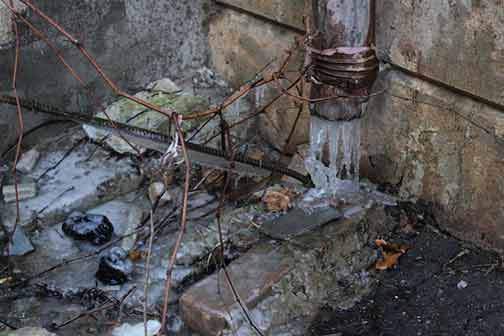
We all know that dealing with drain clogs can be a real nightmare. The gurgling sounds, foul odors, and water backing up in unexpected places are enough to ruin anyone’s day. But fear not! In this article, we’ll dive into some easy steps you can take to avoid drain clogs and bid farewell to those plumbing nightmares. We will also explain how these issues form in the first place and how to act if you notice any signs of backed-up drains.
Understanding Common Causes of Drain Clogs
If your sewer drain is acting up, you might be dealing with a clog. However, before you proceed, it would be best if you knew exactly what you are dealing with. Look for signs that your main sewer drain is clogged, or call a plumber to inspect your home’s plumbing. Avoiding drain clogs begins with understanding what causes them in the first place. Let’s take a closer look at the culprits:
Food Waste
We’re all guilty of rinsing off that greasy pan or pouring cooking oil down the drain, but these actions can lead to stubborn clogs. To avoid drain clogs, steer clear of disposing of grease and oil down the drain. Instead, collect them in a container and toss them in the trash when cooled. Additionally, be mindful when using a garbage disposal. It doesn’t give you a free pass to dump everything down the drain. Be conscious of what you’re putting in there, and handle food scraps and leftovers responsibly. If your kitchen plumbing gets backed up, you should contact professionals instead of trying to repair the issue yourself.

If you feel out of your league, consult with professional plumbers.
Hair and Personal Care Products
Hair products can wreak havoc on our drains. Invest in drain catchers or screens to catch those pesky hair strands before they cause clogs. Regularly cleaning and maintaining drains is also essential, especially in the bathroom, where personal care products like shampoos and conditioners can leave a residue. Proper disposal of hair and personal care products is a must to keep those drains flowing freely.
Soap Scum and Mineral Buildup
Soap scum and mineral buildup are sneaky culprits that gradually narrow your drain’s pathway. Opt for drain-friendly soap products and give your drains some TLC with routine cleaning to prevent soap scum buildup. Additionally, if you have hard water, consider addressing the issue to reduce mineral buildup, which can lead to clogs over time.
Foreign Objects
Our little ones can be quite mischievous, and sometimes toys or other small objects accidentally find their way into drains. To avoid potential clogs, keep small objects away from drains and educate children about drain safety. Also, exercise caution when using gutters for cleaning purposes to prevent inadvertently pushing debris further into the plumbing system.
Home Renovation
Home renovations often involve extensive work on your home, and with that comes the risk of debris, construction materials, or even accidental damage finding its way into your drains. The relocation experts from the Royal Moving Company suggest putting your items in storage to allow easier access to all areas of your home while the work is ongoing. To avoid plumbing nightmares during your renovation, it’s also a good idea to take preventive measures.
Implementing Preventive Measures to Avoid Drain Clogs
Now that we’ve identified the causes, it’s time to take action and prevent those drain clogs from happening:
Regular Drain Cleaning
Regular maintenance is key to avoiding plumbing nightmares. Incorporate DIY drain cleaning methods into your routine, such as using a mixture of boiling water and natural solutions like baking soda and vinegar. If you prefer leaving it to the pros, consider professional drain cleaning services to ensure a thorough and effective clean. Experts will be able to remove even the toughest clogs, which can save you money and time.

Regularly cleaning the fixtures and drains can prevent buildups.
Maintenance of Plumbing Fixtures
Your plumbing fixtures need some love too! Properly using and cleaning toilets, sinks, showers, and bathtubs can go a long way in preventing clogs. Be mindful of what you flush down the toilet and avoid using it as a trash can. Regularly clean your bathroom and kitchen sinks to remove any residue that might accumulate. And when it comes to showers and bathtubs, keep an eye out for hair buildup and clear it out to maintain optimal drainage.
Grease Traps and Strainers
Grease traps in your kitchen sink can help catch grease and prevent it from entering your drain. If your kitchen gets a lot of use, you should consider installing a grease trap. However, keep in mind that grease traps also require regular cleaning and maintenance. Sink strainers are also fantastic tools for keeping food particles and other debris from clogging up your pipes. Remember to use the strainers regularly for optimal performance.
Long-Term Strategies for Drain Health
Preventing drain clogs requires a holistic approach. Consider these long-term strategies to keep your drains flowing smoothly:
Proper Landscaping and Yard Maintenance
Believe it or not, the state of your yard can impact your drain health. Ensure proper drainage by diverting water away from drains through appropriate landscaping techniques—regularly clean outdoor drains and gutters, removing any debris that might obstruct the water flow. And, of course, avoid letting plant debris accumulate near your drains.

Pay attention to your outdoors exposed pipes.
Preventing Frozen Pipes
Frozen pipes can lead to disastrous clogs and costly repairs. Take preventive measures during the winter months by insulating your pipes to keep them warm. Techniques like opening cabinet doors to allow warm air circulation and letting faucets drip can also help prevent freezing and burst pipe emergencies. Be vigilant for signs of frozen pipes, such as reduced water flow or unusual sounds, and address them promptly.
Professional Inspection and Maintenance
While DIY efforts are commendable, professional plumbing inspections are invaluable for preventing drain clogs. Schedule regular camera inspections of your drains to identify and address minor issues before they become major problems. By investing in professional maintenance, you’ll save yourself from future plumbing nightmares and keep your drains in tip-top shape.
In Conclusion
You’ve now armed yourself with knowledge and easy steps to avoid drain clogs and bid farewell to plumbing nightmares. You can enjoy a clog-free home by understanding the common causes of clogs, implementing preventive measures like regular drain cleaning and proper fixture maintenance, and incorporating long-term strategies for drain health. Remember, preventing drain clogs is a proactive endeavor that requires consistency and attention. So, make it a habit to avoid drain clogs by practicing these tips and tricks. Your plumbing will thank you, and you’ll save yourself from costly repairs down the line.